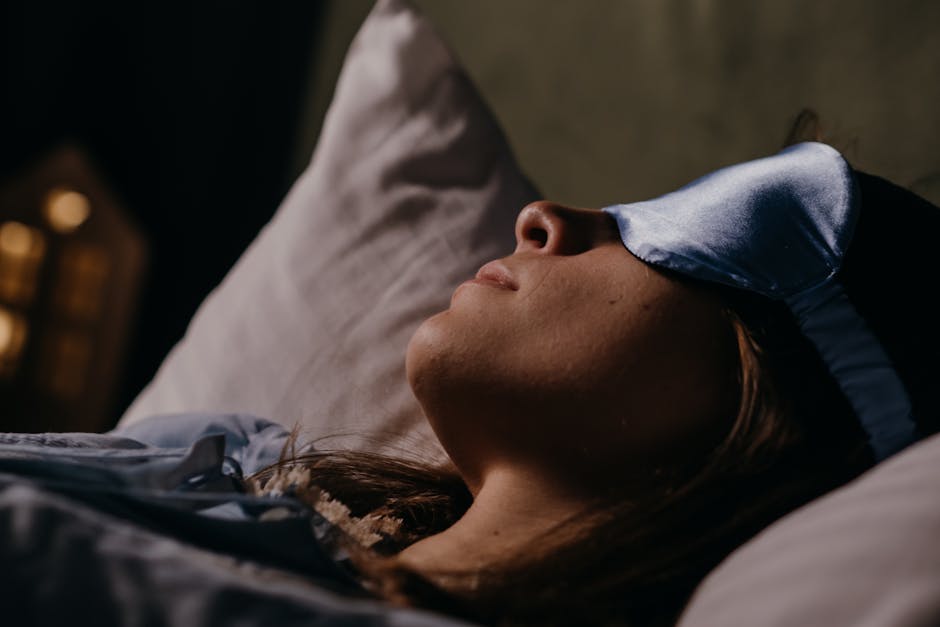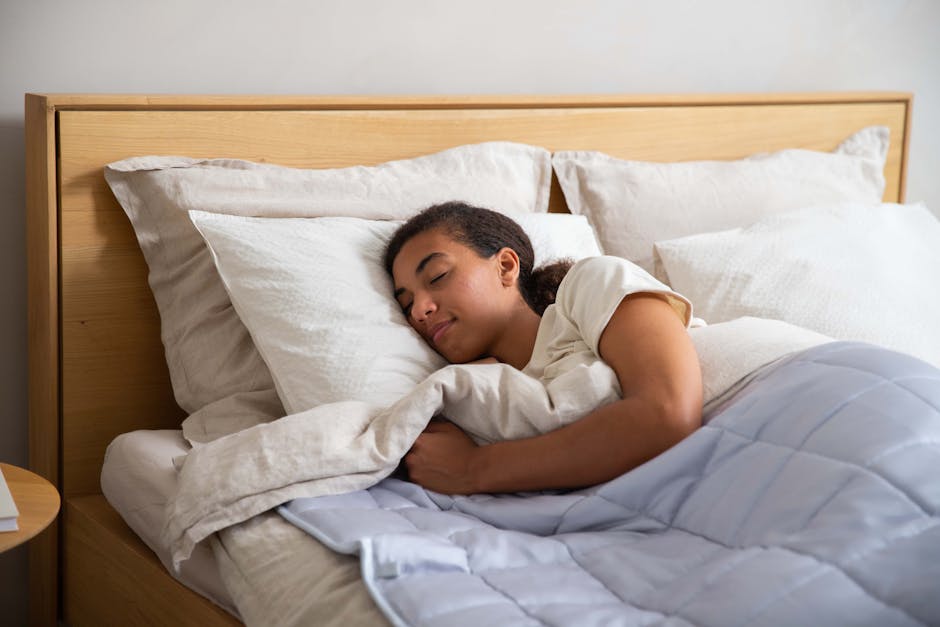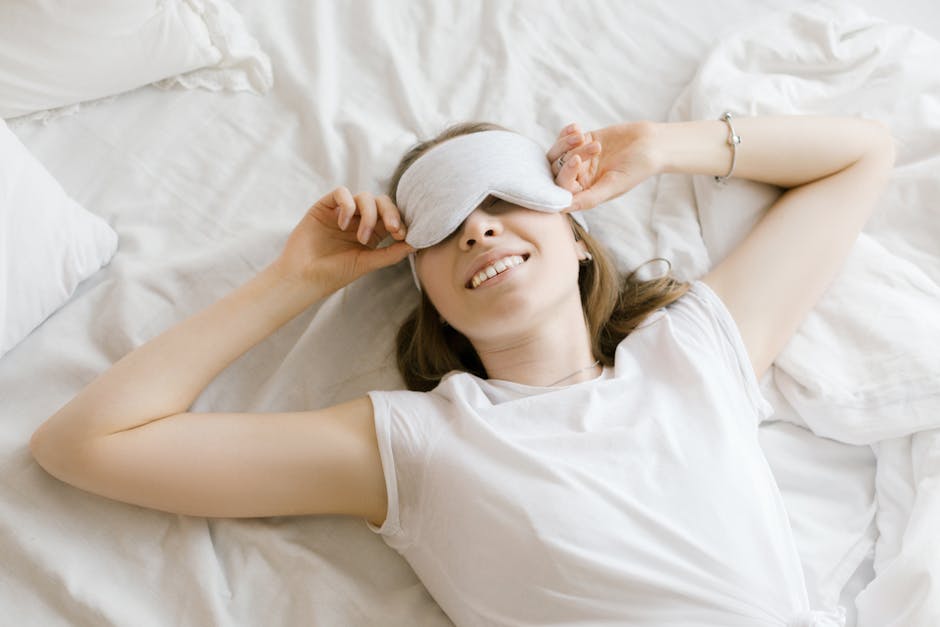Secrets to Better Sleep for Wellness
Did you know that one in three adults doesnt get enough sleep? Lack of sleep can hurt your health, mood, and productivity. If you want to feel better and live well, improving your sleep is essential. Let’s explore the secrets to better sleep and how they can boost your wellness.
Why is Sleep Important for Wellness?

Sleep is not just a time to rest. it’s a vital part of your health. When you sleep, your body repairs itself. You process memories, and your brain clears out toxins. Good sleep helps your heart, boosts your immune system, and even helps with weight control.
According to the Centers for Disease Control and Prevention (CDC), people who sleep less than seven hours a night can have serious health risks. This includes heart disease and diabetes. So, how can you improve your sleep? Lets dive into some practical tips.
What Can You Do to Improve Your Sleep?

1. Create a Sleep-Friendly Environment
Your bedroom should be a sleep sanctuary. Here are a few tips to transform your space:
- Keep it dark: Use blackout curtains to block light.
- Control the temperature: Keep your room cool, around 60-67F (15-19C).
- Minimize noise: Use earplugs or a white noise machine if needed.
- Invest in a good mattress: Make sure it’s comfortable and supports your body well.
Consider decluttering your room too. A clean space helps your mind relax and signals that it’s time to sleep.
2. Stick to a Sleep Schedule
Consistency is key. Going to bed and waking up at the same time every day helps regulate your bodys clock. Try to stick to this schedule, even on weekends.
Set a bedtime that allows for 7-9 hours of sleep. This is the ideal range for adults. If you find it hard to fall asleep, go to bed earlier. Waking up at the same time each day can help you feel more alert.
3. Limit Screen Time Before Bed
Are you guilty of scrolling through your phone in bed? Many of us are! But the blue light from screens can trick your brain into thinking it’s still daytime.
Try to stop using electronic devices at least an hour before bedtime. Instead, read a book or listen to calming music. This helps signal to your brain that it’s time to wind down.
4. Watch What You Eat and Drink
What you consume affects your sleep quality. Avoid heavy meals, caffeine, and alcohol close to bedtime. Heres why:
- Caffeine: This stimulant can keep you awake for hours. Try to limit caffeine intake after 2 PM.
- Alcohol: While it may make you feel sleepy, it can disrupt your sleep cycle.
- Heavy meals: Eating large meals can lead to discomfort and indigestion at night.
Instead, opt for lighter snacks if you’re hungry. Foods such as nuts or yogurt can promote better sleep.
5. Get Regular Exercise
Physical activity can help you fall asleep faster and enjoy deeper sleep. Aim for at least 30 minutes of moderate exercise most days of the week.
Even a daily walk can make a difference. Just avoid vigorous workouts close to bedtime as they might energize you too much to sleep.
6. Manage Stress and Anxiety
Stress can be a major sleep disruptor. When your mind races, it can be tough to relax. Here are some techniques to help manage stress:
- Meditation: Spend a few minutes each day focusing on your breath.
- Journaling: Write down your thoughts and worries before bed.
- Deep breathing: Try simple breathing exercises to calm your mind.
Finding what works for you can help ease your mind and prepare you for sleep.
Are There Any Sleep Myths to Avoid?

There are many misconceptions about sleep. Here are a few to be aware of:
- Myth: You can catch up on sleep during the weekends.
- Truth: While extra sleep can help, it’s not a substitute for consistent hours during the week.
- Myth: Snoring is harmless.
- Truth: Loud snoring can be a sign of sleep apnea, a serious condition.
Understanding these myths can help you make better choices for your sleep.
How Can You Track Your Sleep?

Keeping track of your sleep can help you identify patterns. Consider using:
- Sleep journals: Write down when you go to bed and wake up.
- Sleep apps: Many apps help track your sleep stages and offer tips.
Look for trends in your sleep quality. If issues persist, consider consulting with a sleep specialist.
What Are Some Useful Sleep Aids?
Many people turn to sleep aids for help. Here are some options to consider:
- Herbal supplements: Chamomile and valerian root are popular for relaxation.
- Melatonin: This hormone helps regulate sleep-wake cycles.
Always talk to a healthcare professional before trying new supplements. They can guide you on what’s safe and effective.
When Should You Seek Help?
If you’ve tried these tips and still struggle with sleep, it might be time to seek help. Look for signs like:
- Chronic insomnia (trouble sleeping for over a month)
- Excessive daytime sleepiness
- Uncontrollable snoring or gasping for air during sleep
A doctor or sleep specialist can help diagnose and treat any underlying issues. Remember, you don’t have to suffer in silence.
Take Action for Better Sleep!
Improving your sleep is a journey. Start with small changes and see what works for you. Heres a quick recap of actionable tips:
- Create a sleep-friendly environment.
- Stick to a consistent sleep schedule.
- Limit screen time before bed.
- Watch what you eat and drink.
- Get regular exercise.
- Manage stress and anxiety effectively.
Better sleep leads to better health. Embrace these secrets to unlock the benefits of restful nights. Sweet dreams!
For more insights on wellness, check out our related post on the importance of hydration.
For more information about sleep health, visit CDC Sleep Health.



